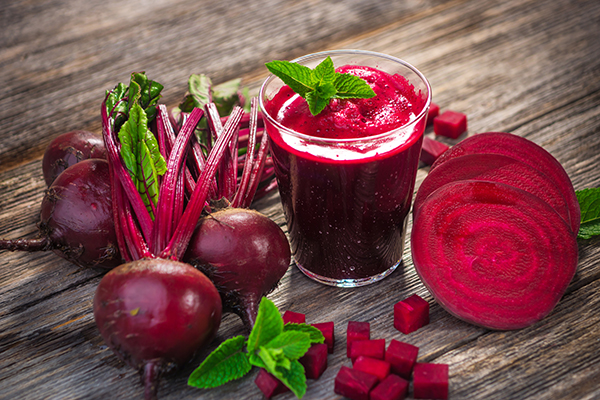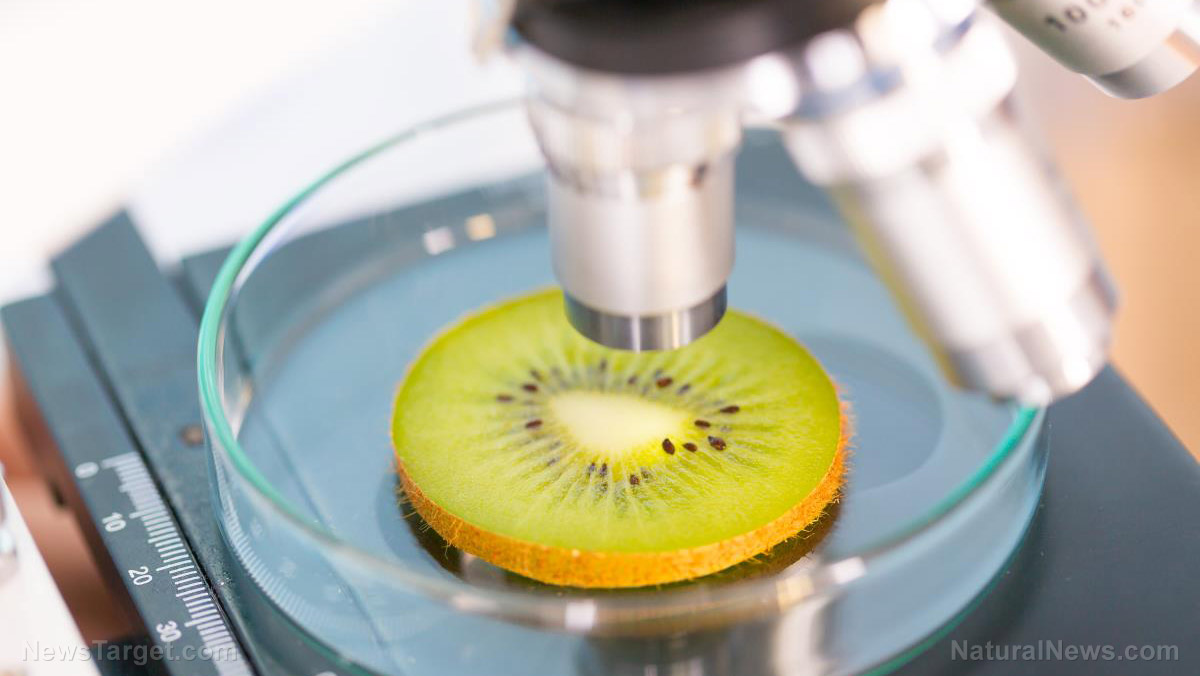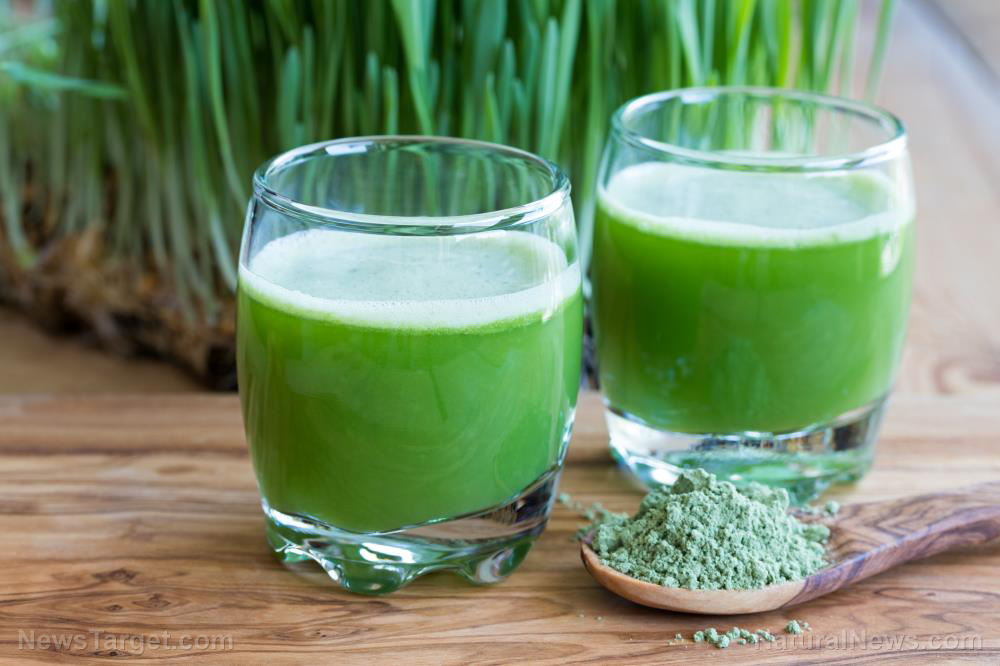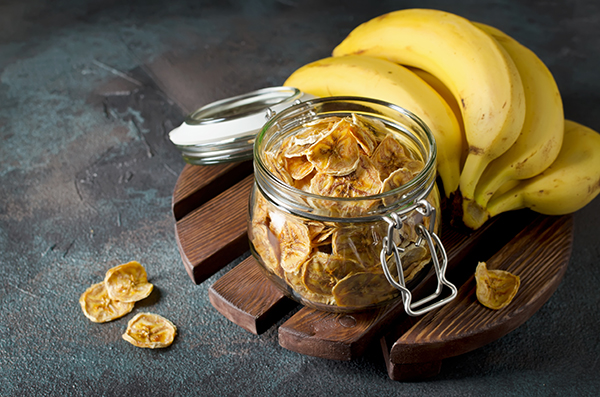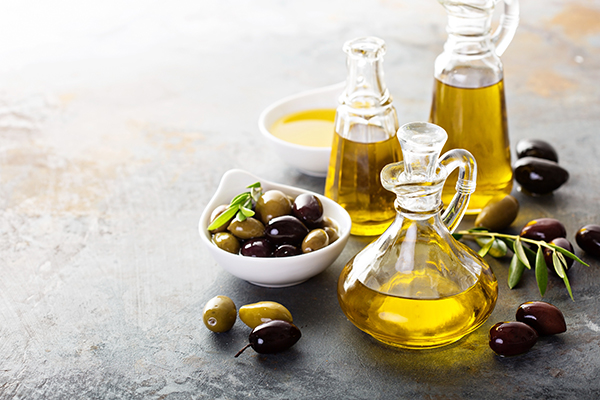Healing with whole foods: 6 Superfoods that can help ease anxiety
02/16/2023 / By Zoey Sky

Anxiety is a feeling of fear, dread and uneasiness. It can be triggered by stressful situations, like feeling under pressure from work or family life. An estimated 40 percent of Americans suffer from anxiety.
Cutting out caffeine, exercising regularly and getting eight hours of sleep every night can help relieve anxiety. But if you are still feeling anxious, making some changes to your eating habits can help.
Studies suggest gut and anxiety are closely linked and that a lack of some vitamins and nutrients may trigger feelings of worry and concern. Anxiety is also linked to inflammation in your body. Fortunately, certain superfoods can help counteract this and reduce damage to your cells.
Fight anxiety with these superfoods:
Blueberries
Blueberries are a superfood powerhouse and researchers have found that the benefits of blueberries may also help reduce anxiety.
According to research, blueberries can help reverse cognitive decline, protect against dementia and lower heart disease risk. The berries are also full of vitamin C and scientists think this can help prevent anxiety.
Vitamin C helps reduce the amount of cortisol or the stress hormone that is released in response to a stressful event, meaning the vitamin can help reduce feelings of anxiety.
Small-scale studies also suggest a link between eating blueberries and lower levels of anxiety. In a 2020 study, 64 adolescents were given a daily supplement of blueberries for four weeks.
At the end of the study, the young participants were all reporting fewer symptoms of depression.
Additionally, blueberries are full of antioxidants, which can help reduce cell damage caused by stress.
Health authorities recommend that women should get about 75 milligrams (mg) of vitamin C a day while men should get 90 mg. One cup of blueberries contains about 25 percent of the daily requirement for vitamin C.
Dark chocolate
Dark chocolate contains flavonols, or plant compounds that are antioxidants. These compounds can help reduce damage to the body caused by stress.
Studies also suggest that dark chocolate can boost blood flow to the brain, which can boost alertness and help you adjust better to stressful situations.
Eggs
Eggs are a controversial food, with some saying they are linked to high cholesterol and others claiming they should be part of a balanced diet.
Like other superfoods, when consumed in moderation, eggs offer many benefits. Eggs are one of the few foods full of vitamin D, which your body uses to produce and release serotonin, the “feel-good” hormone.
Data from earlier studies have found that boosting your vitamin D intake can help raise serotonin levels. This then helps boost your mood. (Related: Study: 5-HTP can boost serotonin levels and promote healthy eating habits.)
Papers have also suggested a link between vitamin D deficiency and anxiety.
Adults need about 400 to 800 international units (IU) of vitamin D a day. One large egg contains about 44 IUs of vitamin D or 10 percent of your daily needs.
Estimates suggest that one in two Americans is deficient in vitamin D, which is more prevalent among people in the black ethnic group. Symptoms of vitamin D deficiency include fatigue, poor sleep quality and feelings of depression or sadness.
Hummus
Some say eating hummus can help combat anxiety. Hummus is a Middle Eastern dip made from chickpeas and it is full of tryptophan.
The body uses tryptophan to make melatonin, the sleep hormone, and serotonin. More serotonin can help improve your mood and fight feelings of anxiety.
Research also suggests that melatonin can help you get a good night’s sleep. Getting enough sleep may help to lower feelings of anxiety.
If you have trouble falling asleep, try taking melatonin shortly before your bedtime.
Small-scale studies have suggested that getting more tryptophan can lower anxiety. The data is also backed up by large-scale studies.
In one study, 15 adults were exposed to a stressful environment twice: Once when they had normal tryptophan levels in their blood and when they had lower levels.
Results revealed that anxiety, tensions and feelings of nervousness were higher when the participants had lower tryptophan levels. This suggests that the amount of tryptophan in the body may contribute to anxiety levels.
Additionally, tryptophan may help improve memory and learning. It can also help you get a good night’s sleep.
If you follow a balanced diet, you should be able to get enough tryptophan.
Experts suggest that you need about 250 to 425 mg of tryptophan a day, but estimates suggest that most individuals are already consuming more than 900 mg every day.
Salmon
Experts often recommend the Mediterranean diet because it can help you live longer and make you less likely to develop dementia.
Researchers also suggest that eating salmon, a key ingredient of the Mediterranean diet, may also help lower levels of anxiety. Salmon is rich in omega-3 fatty acids, which previous studies have suggested can reduce inflammation in the body and lower anxiety.
According to previous large-scale studies, a diet rich in omega-3s is associated with lower levels of anxiety.
In a 2020 meta-analysis of 19 clinical trials involving 2,240 participants, researchers observed an improvement in anxiety symptoms when the participants consumed more foods containing omega-3s.
Small-scale papers also detected a link. In a paper from 2014, men who ate salmon three times a week for five months reported lower anxiety levels than other participants eating a similar amount of beef, chicken, or pork every week.
Omega-3 fatty acids can also help lower the risk of heart disease or stroke and reduce symptoms of eczema and some types of arthritis.
The American Heart Association recommends that adults get from 500 to 1,000 mg of omega-3s per day.
Yogurt
Yogurt is full of good bacteria, which can contribute to building and maintaining a healthy gut microbiome.
A healthy gut microbiome can help reduce the risk of one of the symptoms of anxiety, an upset stomach. This is often caused by stress hormones interfering with the digestive system.
In one study involving 66 postmenopausal women, scientists reported that eating probiotic yogurt once a day for six weeks was associated with lower levels of reported anxiety.
The best types of yogurt for combating anxiety are probiotic yogurts like Greek yogurt and kefir.
Foods to avoid to reduce anxiety
If you are still feeling anxious after trying some of the superfoods above, the culprit may be one of the trigger foods detailed below:
Alcohol
Drinking alcohol can make you feel more relaxed, but this good mood is often temporary.
In the long run, alcohol is a depressant. Drink alcohol in moderation and drink lots of water to stay hydrated.
Candy and sweets
Many people have a sweet tooth, but desserts only give you a temporary high.
Sugar is absorbed quickly into the bloodstream and the absorption causes an initial high or surge of energy. Eventually, that surge wears off as your body increases its insulin production to remove the sugar from your bloodstream. After eating sweets, you will just feel tired and low.
Processed foods
According to a study, processed foods like hot dogs, sausage and cakes may cause anxiety after eating since a diet of processed and fatty foods increases the risk for depression.
In the study, the participants who mainly ate high-fat dairy products, fried food, processed meat and sweetened desserts had a 58 percent higher risk of depression than those who ate “whole” foods, like fish and vegetables.
Boost your mood naturally by eating superfoods like berries, hummus and salmon.
Visit Mental.news for more articles on how to improve your mental health.
Watch the video below to learn how to make salmon hamburg steak.
This video is from the yummy goodies! channel on Brighteon.com.
More related stories:
Relieve anxiety with these 5 herbal supplements.
Green tea food therapy: Calm anxiety with this zesty matcha-blackberry pudding.
5 Dietary recommendations that relieve your anxiety.
Sources include:
Submit a correction >>
Tagged Under:
This article may contain statements that reflect the opinion of the author
RECENT NEWS & ARTICLES
COPYRIGHT © 2017 SUPERFOODS NEWS







